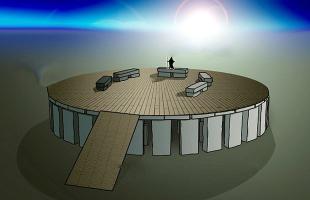Copy Link
Add to Bookmark
Report
AIList Digest Volume 4 Issue 118

AIList Digest Friday, 9 May 1986 Volume 4 : Issue 118
Today's Topics:
Queries - AI Applications in Libraries & Expert Systems Advice &
Common Lisp for PC,
AI Tools - More DOS-Based Software Tools for AI,
Approaches - Neural Networks,
Expert Systems - Call for Paper on Expert System Interfaces
----------------------------------------------------------------------
Date: 6 May 86 01:46:08 GMT
From: decvax!mcnc!ecsvax!burgin@ucbvax.berkeley.edu (Robert Burgin)
Subject: AI Applications in Libraries
I am interested in locating individuals who are currently
working with artificial intelligence applications in
libraries or library-like environments. Any information
would be appreciated.
--Robert Burgin
School of Library and Information Science
North Carolina Central University
Durham NC 27707
------------------------------
Date: Wed, 7 May 86 16:01:22 EDT
From: Ruth S Dumer AMSAA/CSD <rdumer@AMSAA.ARPA>
Subject: Request Expert Advice
I am developing an expert system for military applications
and am open for comments or suggestions as to a possible inference
engine tool. There are several key issues to keep
in mind - The expert system (fusion from independent data sources to
identify targets) appears to be a forward chaining problem. Input
to the expert system will be from a time-ordered data file. The
hardware is a VAXstation II running Common LISP. I have information
about the Automated Reasoning Tool (ART) and would like your
opinions about ART or any other tool. You can contact me at
rdumer@amsaa.arpa
------------------------------
Date: 0 0 00:00:00 PDT
From: "Jennings, Richard" <jennings@lll-icdc.ARPA>
Reply-to: "Jennings, Richard" <jennings@lll-icdc.ARPA>
Subject: Common Lisp for PC Query
I am searching for a Common Lisp interpreter/compiler which I can
use on a PC-AT. It cannot be copy protected, and it should be
able to run all the examples in Steele's Common Lisp correctly.
Since I plan to use it with Epsilon, it does not need to include
an editor, but should have a tty interface. It should also accept
external functions.
Richard.
Arpa: jennings@lll-icdc
[The digesting delay can be large, but I haven't really held
this message since day 0. SRI-AI is about to change host machines,
though, so typical snafus could cause service interruption over
the next few days. You may be able to reach me at SRI-IU if
SRI-AI is down. -- KIL]
------------------------------
Date: Wed, 7 May 1986 01:14 EDT
From: Gaylord Miyata <MIYATA%OZ.AI.MIT.EDU@XX.LCS.MIT.EDU>
Reply-to: MIYATA%OZ.AI.MIT.EDU at XX.LCS.MIT.EDU
Subject: More DOS-based Software Tools for AI
Since you are listing development tools, the following products are
available from Gold Hill Computers, Inc.:
GCLISP/SM: Golden Common Lisp (Small Memory), $495
GCLISP/LM: Golden Common Lisp (Large Memory), $695
GCLISP/286 Developer: Golden Common Lisp 286 Development
System (LM & Compiler), $1195.
GCLRUN: Golden Common Lisp Runtime System (per volume OEM agreement).
GCLISP Network: Interconnects PCs and Symbolics, $395.
CCLISP: Concurrent Common Lisp for Intel HyperCube (call).
Gold Hill Computers, Inc.
163 Harvard St.
Cambridge, MA 02139
Note the following erroneous entry. We do not market this product.
Neither does the company whose phone number is listed. You should
eliminate it from your list.
K:base: Expert system shell
GCLisp (Golden Common Lisp), $495
Gold Hill Computers
163 Havard St.
Cambridge, MA 02139
(404) 565-0771
------------------------------
Date: Wed 7 May 86 14:22:17-PDT
From: Stephanie F. Singer <SINGER@su-sushi.arpa>
Subject: neural networks
[Forwarded from the Stanford bboard by Laws@SRI-AI.]
Anyone interested in the technical details of Hopfield's neural networks
should look at his papers in the Proceedings of the Nat'l Academy of Sciences,
1982 and 1984. The first deals with a digital model of a collection of
neurons. The second discusses an analog model. There should be an article
in Science sometime soon. Hopfield and Tank have shown that the analog model
has enough computational power to find good solutions to TSP in real time.
------------------------------
Date: Wed, 7 May 86 15:07:28 EDT
From: Jim Hendler <hendler@brillig.umd.edu>
Subject: Call for Paper on Expert System Interfaces
CALL FOR PAPER (not Papers):
We are looking for a paper to be a chapter in a book entitled "Expert
Systems: The User Interface." The book is being published by Ablex in the
series "Human/Computer Interaction" and is due out in May of 1987. Although
enough authors have committed to guarantee publication, we have need of one
more paper.
In specific: we're looking for a paper that discusses some interface issues
in an expert system for some sort of non-medical, diagnostic problem. The
paper should either discuss principles for the design of the interface for
such a system or present empirical research evaluating one.
Below is a description of the book, its objectives, and the publication
schedule. If you have written, or believe you can write, a chapter on the
above topic please send me electronic mail (hendler@maryland arpa) including
a brief description of the work and your phone number.
Jim Hendler
Computer Science Dept.
University of Maryland
College Park, Md. 20742
Hendler@maryland arpa
Expert Systems: The User Interface
James Hendler (editor)
Over the past decade the field of expert systems has grown from a few small
projects to a major field of both academic and industrial endeavour. The
systems have gone from academic laboratories, through industrial
development, and are now reaching a substantial user population. In other
areas of computer science such explosive growth has often led to systems
which are difficult to learn and painful to use. Will expert systems suffer
this same fate? In this book we hope to show that such an outcome is not
inevitable.
The book takes a broad view of work going on in the development of user
interfaces for expert systems. It examines the expert system building
process in all of its phases both in academic and industrial
surroundings--the authors invited to contribute include academic
researchers, medical expert system developers, and industrial product
designers. No one domain is singled out for examination nor is any one
approach to be advocated. The goal is to educate, not proselytize.
For the purposes of this book we will view the development of an expert
system as containing three separate, but highly interacting, components:
knowledge capture, programming and debugging the system, and finally placing
the system before an active user community. We hope to examine the design
of tools for making these stages more efficient and the development of
systems and tools which can be used by the various personnel involved in
this process.
Some of the issues we hope to address include:
The issues involved in providing tools for the different personnel involved
in each of these stages: Who is involved at each stage? What are their
particular needs? How are these needs best addressed in the design of
systems?
The application of general human factors principles in the design of expert
systems: How do expert systems vary from more traditional technologies
in their interface needs? Are general theories of cognition and/or systems
design applicable? If so, how? If not, are there any new theories to
replace them?
The special needs in the design of expert systems. Are there aspects
in the design of expert systems that must be attended to by interface
designers? Is our user community the same as that of editors, operating
systems, and other traditional systems? If not, why not?
The efficacy of these interfaces. How do we evaluate the interfaces
designed for expert systems? What is presently available? Are these systems
beneficial to the users? If so, how do we demonstrate this? If not, how
do we demonstrate that?
The proposed book will be typeset by the publisher and will be
aimed at being produced according to the following schedule:
Drafts: June 17, 1986
Reviewing by authors and others: September 15, 1986
Revised papers: October 31, 1986
Copy editing and typesetting by the publisher: January 15, 1987
Proofreading: February 15, 1987.
Bookpublished: May 15, 1987.
Book information:
This book will appear in the Ablex series ``Human/Computer
Interaction'' being edited by Ben Shneiderman.
The proposed method of review is to have each paper read by several
reviewers: at least one other author, the editor, and an outside reviewer.
Each author will be asked to review at least one other paper.
8% royalties will be distributed among the authors on a by chapter basis.
------------------------------
End of AIList Digest
********************
























